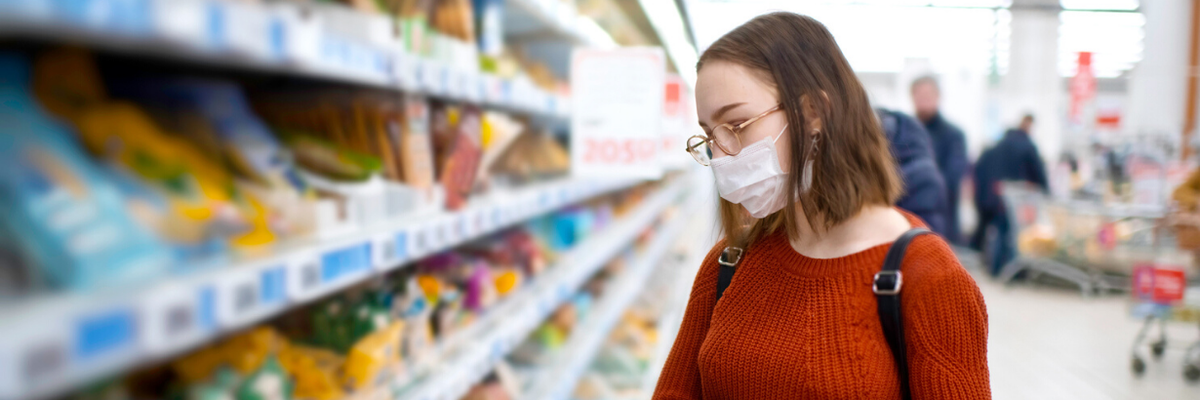A recent YouGov webinar – with experts from Ocado, CostCutter, and The Grocer – highlights the effect the pandemic is having on both online and offline shopping
New Government figures reveal that COVID-19 caused a dramatic and unprecedented 21% drop in the UK’s GDP. With people confined to their homes – and with restaurants and takeaways closed – the grocery sector is one of the few that can be said to have actually benefited from the pandemic.
In YouGov’s webinar, Assessing the positive impact of COVID-19 for grocery retail in the UK, our panel of experts explored the effects that coronavirus has had on public behaviour – and the potential long-term impact on shopping and consumption habits after lockdown.
Here are some of the key takeaways from the session.
State of the nation
The webinar opened with a discussion of the current consumer context in the UK. Matthew James, YouGov’s Retail Client Lead, highlighted the public’s somewhat pessimistic attitude to the pandemic.
Some 86% of Brits think the country is headed towards a depression or a recession, and a similar proportion (83%) worry that local businesses will be unable to recover the losses they’ve incurred during the COVID-19 crisis.
Online grocery shopping is on the rise
But if the situation looks dire for the country, our session indicates that it’s relatively good news for online grocery retailers. Over a quarter of UK adults (28%) say they’ve been spending more on online groceries, and a third (32%) are saying they intend to make more use of online shopping or delivery.
One in six (16%) claim to have bought groceries online more frequently since the lockdown.
That said, the new normal has come with certain challenges. Emma White, Research Manager at Ocado, explained how the company has managed an influx of over 800,000 shoppers trying to place an order at least once a week. She also spoke about how the online grocery retailer is building new fulfilment centres to boost capacity and serve over 30,000 more weekly orders during the COVID-19 lockdown.
Convenience stores in an inconvenient time
The discussion moved on from large-scale online shopping to a kind of retail that’s become vitally important to the public during lockdown: convenience stores.
With shortages of toilet paper, flour, and other essentials in supermarkets – particularly during the early stages of lockdown – the humble corner shop and local chains such as Costcutter, Spar have become a crucial source of supplies for many people over the course of the COVID-19 pandemic.
Beyond the convenience of convenience stores, six in ten (63%) are making a concentrated effort to support local businesses and buy local products. But does this goodwill come with an expiry date? Sean Russell, Marketing Director at Costcutter asked how independent retailers can convert lifeline shoppers into lifelong shoppers – and spoke about how the company has had to reformat and reflow many of its stores to reflect the change in consumer priorities.
Lockdown lifestyles
Finally, the webinar touched on how the public is coping with the COVID-19 pandemic from a behavioural perspective.
Among other things, it asked if people were being more healthy or less healthy with their diets during lockdown – with more drinking at home and four in ten (40%) saying they’re eating better, the answer may well be “both” – and whether coronavirus had overridden sustainable and ethical considerations when purchasing groceries.
While 37% of consumers say they intend to buy more green foods and drinks, Daniel Woolfson, Food & Drink Editor at The Grocer, claims that the falls in consumer confidence and household incomes are going to test the sustainable credentials of many businesses.










